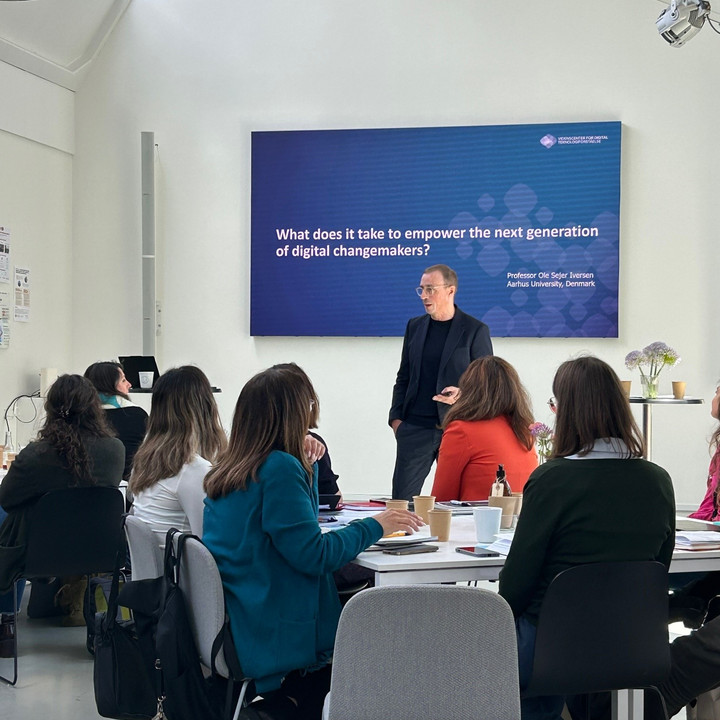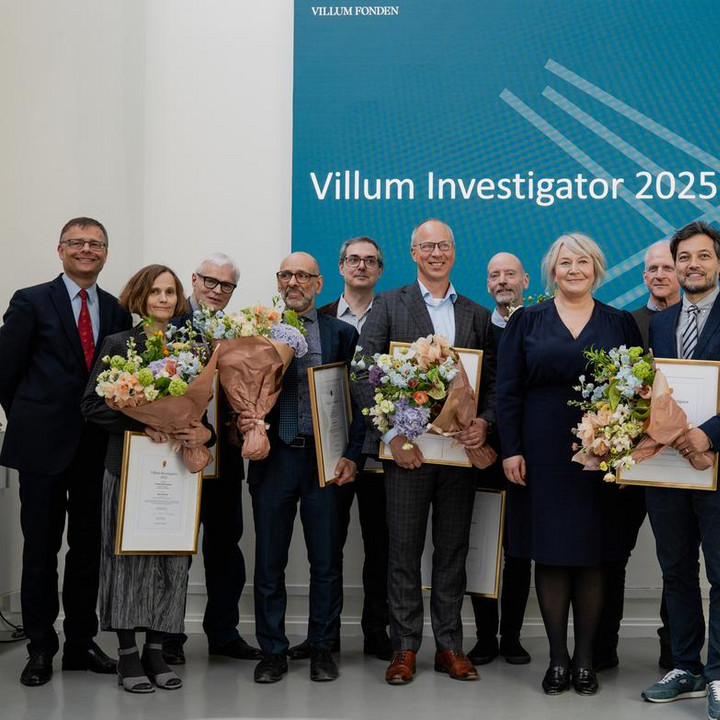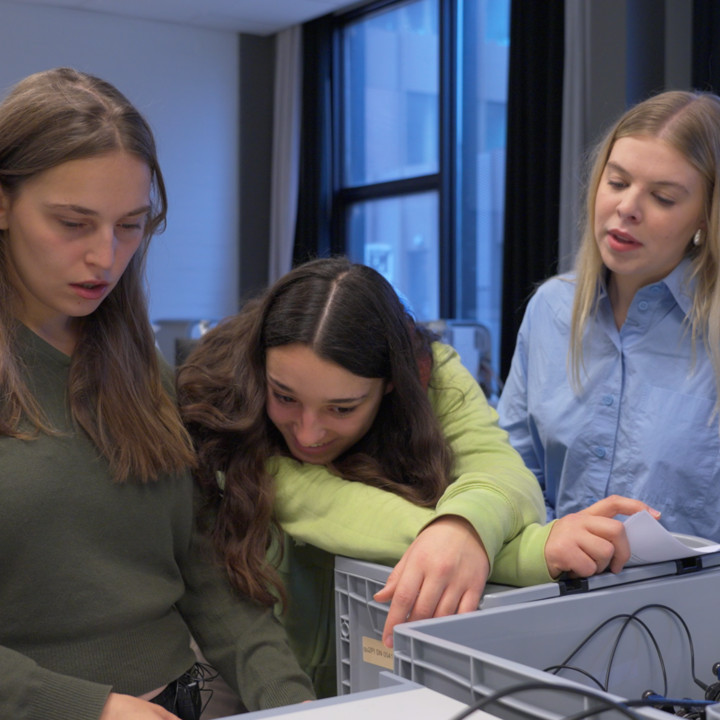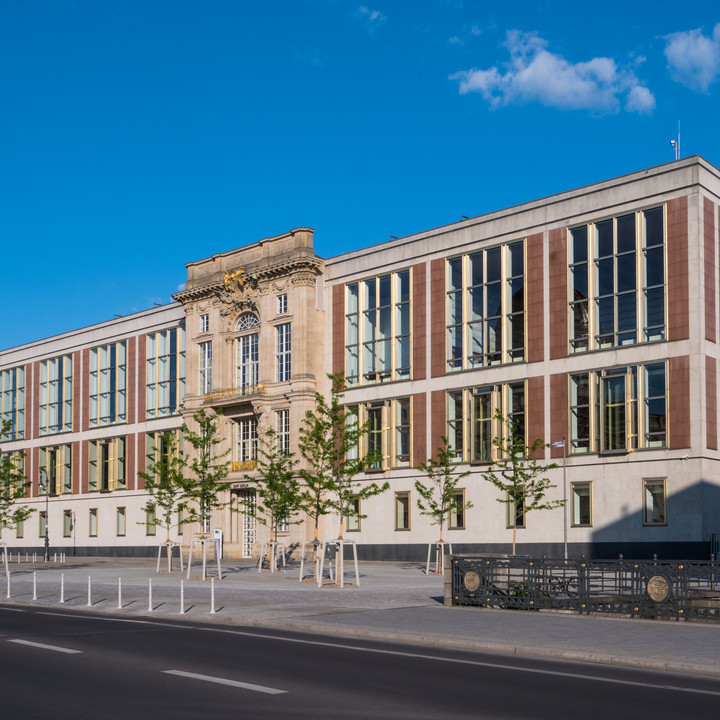Villum Experiment Programme: Glass that heals itself and batteries you listen to - the solutions of tomorrow are extraordinary
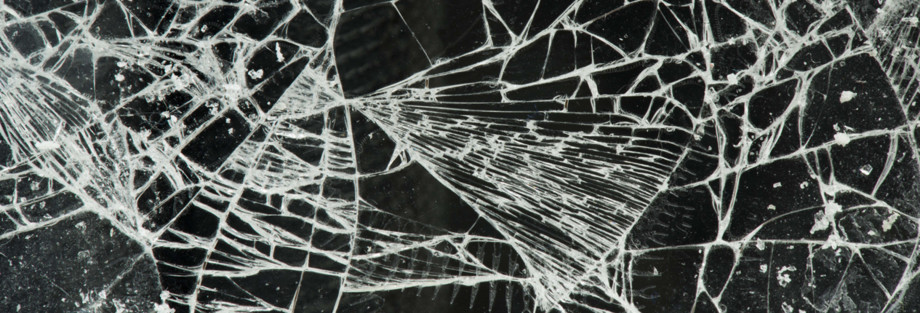
Villum Experiment Programme awards DKK 97 million to 49 extraordinary ideas
This year, 49 researchers will receive a total of DKK 97 million for research experiments.
The Villum Experiment Programme received 406 applications from universities around Denmark. The 49 grantees come from nine different countries, but are all affiliated with a Danish university. Each grant is for DKK 2 million over a period of two years.
Villum Fonden is awarding DKK 97 million in grants this year, to 49 different research ideas. This means researchers will get a unique opportunity to test quirky ideas with the potential to shake up our knowledge of the world. One of them is about glass.
Liquid magic
With a grant of DKK 1.9 million from the Villum Experiment Programme, Professor Morten Mattrup Smedskjær from Aalborg University will attempt to produce a special glass that can flow by itself to damaged areas, such as scratches and cracks, and repair them. This would pave the way for self-healing eyewear, mobile phone screens, car windscreens etc. He calls it ‘liquid magic’:
“There have been successful attempts in the past to create self-healing materials from metals and polymers, such as plastics. But no-one has yet succeeded with glass, without external influence (such as heating it up). If we succeed, this new technology will dramatically extend the lifetime of glass materials,” says Professor Morten Mattrup Smedskjær from Aalborg University.
If the new kind of glass ends up working, it will not only increase the lifespan of mobile screens, but also make glass products more sustainable, because they will not have to be replaced every time they get badly scratched or cracked.
Unleash innovative scientific minds
The Villum Experiment Programme has been created for ideas within the technical and natural sciences that will challenge the world we know and get researchers to think outside the box:
“No-one knows what the next big scientific breakthrough will be, but I think the breakthrough will only come if we unleash innovative scientific minds, and put extraordinary ideas to the test. The idea of self-healing glass is a good one, with far-reaching implications if successful, not least in relation to creating a more sustainable society,” says Thomas Bjørnholm, Executive Chief Scientific Officer at Villum Fonden.
About The Villum Experiment Programme:
The Villum Experiment Programme was created for research projects in technical and natural sciences that challenge the norm and the way we approach important subjects. The projects do not have to have a specific solution to a known problem as their end goal. Projects can also simply explore unknown territory. For example, there is a project this year that aims to analyse the importance of the oceans’ underwater mountains for the diversity of seabirds such as albatrosses.
The Villum Experiment Programme is announced once a year, and the application deadline is in March. The anonymous applications are assessed by 21 international judges. The judges are therefore unable to consider the applicant’s CV or academic credentials, but must solely judge each research idea based on its potential to change our knowledge of the world. A total of 348 grants have been awarded to research extraordinary ideas since the programme began in 2017.
Have you listened to your battery today?
Another of this year’s Villum Experiment projects seeks to discover if you can measure the health of lithium-ion batteries by listening to them. Lithium-ion batteries are used in everything from mobile phones to electric vehicles. The problem with these batteries is that they slowly degrade during use, and we do not know exactly how or to what extent. We do not know how long the battery will last, or how quickly it will charge or become discharged. Under the project, Associate Professor Daniel-Ioan Stroe from Aalborg University will look at whether one can get an accurate picture of a battery’s state of health by analysing the sounds that occur inside it, due to changes in its physical structure during use.
Villum Experiment Programme recipients in 2023
Ali Mohammad Nia, PhD.: SimCO2CFuel: Simultaneous CO2 Capture and Renewable Fuel Production by 4D Self-Electro-Promoted Catalyst Concept, DKK 1.99 million.
Chen Li, Assistant Professor: Time-Traveling Conversations: Designing Robots to Imitate Speaking Styles of Historical Figures, DKK 1.99 million.
Fan Liu, Assistant Professor: The neglected defender? Rethinking biofilms on plastics, DKK 2 million.
Daniel-Ioan Stroe, Associate Professor: Listen2Battery: Diagnosing the Health of Lithium-ion Batteries through In-Situ Sound Monitoring, DKK 1.99 million.
Morten Mattrup Smedskjær, Professor: Liquid magic: Self-healing glasses from porous liquids, DKK 1.93 million.
Torsten Nygård Kristensen, Professor: Using male killing bacteria to markedly boost the efficiency of commercial insect cultures for processing food waste, DKK 1.99 million.
Kim Lambertsen Larsen, Professor: Unlocking the potential of cyclodextrin crystals, DKK 1.99 million.
Christian Mohn, Senior Researcher: A global assessment of seabird and seamount connections, DKK 1.91 million.
Peter Balling, Professor: Looking for terahertz emission from laser-excited dielectrics: New light on the carrier dynamics, DKK 1.99 million.
Ltaief Ben Ltaief, Postdoc: Exploring vibrational intermolecular Coulombic decay in mixed water clusters: From vibrations to electron solvation, DKK 1.99 million.
Espen Drath Bøjesen, Assistant Professor: Locally Time Resolved 4D-STEM, DKK 1.99 million.
Thomas Boesen, Senior Researcher: Bioinspired surfactants that protect cryo-EM samples against denaturation at the air-water interface, DKK 1.99 million.
Yuya Hayashi, Assistant Professor: What the Cell "Sees" in Extracellular Vesicle Biology, DKK 1.99 million.
Søren Munch Kristiansen, Associate Professor: Fingerprinting displaced molecular substances and environmental health in deep history: archaeo-xenobiotics, DKK 2.0 million.
Henrieka Detlef, PhD: Arctic copepod lipid markers as a new tool to reconstruct climate-driven ecosystem change, DKK 1.99 million.
Stela Canulescu, Senior Researcher: Junctionless nanostructure solar cells, DKK 2.0 million.
Hao Wu, Associate Professor: Synthesis of black phosphorus from biomass, DKK 1.99 million.
Michael Seifner, Postdoc: Nanoscale Imaging of a Photocatalyst at Work: What Comes After the Light?, DKK 1.99 million.
Pritam Banerjee, Postdoc: Stabilization of few-atom metal catalysts in 3D nano-cage architecture for conversion of CO2 into high-value hydrocarbon, DKK 1.99 million.
Kristian Mølhave, Professor: Imaging the driving force in electrochemistry, DKK 1.99 million.
Yuepeng Dong, Assistant Professor: Optimise Building Heating via Solar-Geothermal Energy Pile System and Digital Twins – SGPile, DKK 1.99 million.
Mirza Karamehmedovic, Associate Professor: neXt-Ray: a super-resolution light engine, DKK 2 million.
Mikael van Deurs, Associate Professor: Geomagnetic variations and fish year-class strength, DKK 1.45 million.
Sebastian Meier, Associate Professor: Uncharted Pathways: Aqueous Chemistry Avoided by Terrestrial Life (UPACA), DKK 1.99 million.
Jie Meng, Postdoc: Visible-Light-Response Multiple Exciton Generation, DKK 1.98 million.
Jaysree Pan, PhD: Can catalysts decompose robust plastics? (PlasticCat), DKK 1.99 million.
James Webb, PhD: AXQM: Axion Dark Matter Detection By Quantum Magnetometry, DKK 1.99 million.
Jeppe Ormstrup, Postdoc: Mastering of Metal Solidification, DKK 1.99 million.
Jakob Mann, Professor: Automotive 4D lidars for monitoring of rotating wind turbine blades (4DLIDAR), DKK 1.99 million.
Mikkel Bentzon-Tilia, Associate Professor: Eukaryogenesis reenacted - testing evolutionary models in miniscule droplets, DKK 2 million.
Mircea Lungu, Associate Professor: Hyper-Personalized Learning Paths Through the Internet: A Sustainable Approach To Accelerating Language Education, DKK 1.99 million.
Johannes Lohmann, PhD: Doomsday by installments - challenging the dogma of singular climate tipping points in the laboratory, DKK 1.95 million.
Emilio Mármol Sánchez, PhD: Ancient RNA: uncovering the missing link to reveal a new era in Paleogenetics, DKK 1.99 million.
Kasun Bodawatta, Postdoc: Most Optimal Sampling Source for terrestrial biodiversity monitoring (MOSS), DKK 1.99 million.
Antton Alberdi, PhD: InSituMicroSeq: 3D reconstruction of microbial communities through in situ sequencing, DKK 1.99 million.
Victor Rodrigo Ibarra Chavez, PhD: Weaponizable satellites: expanding the use of phage hyperparasites as multipurpose delivery platform to modify bacteria, DKK 1.97 million.
Per Amstrup Pedersen, Associate Professor: Re-shaping gateways for selective recycling of valuable chemical compounds and for microbial cell factories, DKK 1.88 million.
Jamie Auxillos, Postdoc: A powerful new technique to uncover how cells modify non-protein-coding RNAs, DKK 1.99 million.
Ole Hylling, Postdoc: Polyploidy is the rule, not the exception, in the bacterial world, DKK 1.99 million.
Deyong Zhu, PhD: Biofilms: Unicellular Assemblies or Multicellular Organisms?, DKK 1.99 million.
Ling Deng, Associate Professor: FirstVirus: Finding the first archaeal RNA virus, DKK 2 million.
Sylvester Holt, Assistant Professor: A yeast single-cell mucus layer for exploring the activity of sensory receptors in an olfactory mucus model, DKK 1.93 million.
Pedro Correia, PhD: Editing by Grafting: Advancing transgene-free genome editing in grain cereal crops via grafting, DKK 1.99 million.
Daniel Poveda Huertes, PhD: MOving ON WAter (MOONWAlk): Algae buoyancy LacKing limbs, DKK 1.99 million.
Michael Ogden, Postdoc: We were wrong! Using advanced techniques to reveal how cellulose-inhibiting herbicides actually work, DKK 1.99 million.
Xiang Xi, PhD: Indistinguishable quantum optomechanical devices protected by topology, DKK 1.99 million.
Himanshu Khandelia, Associate Professor: Using bacteria to sense and remove nanoplastics, DKK 1.98 million.
Stefan Vogel, PhD: Encoding Chemistry - Green Chemistry in Biomimetic Nanoreactors” – (EnCode), DKK 1.99 million.
Christian Frydendahl, Postdoc: LUMINA - Light-based Neuromodulation in Novel Material Artificial Neurons, DKK 1.99 million.
